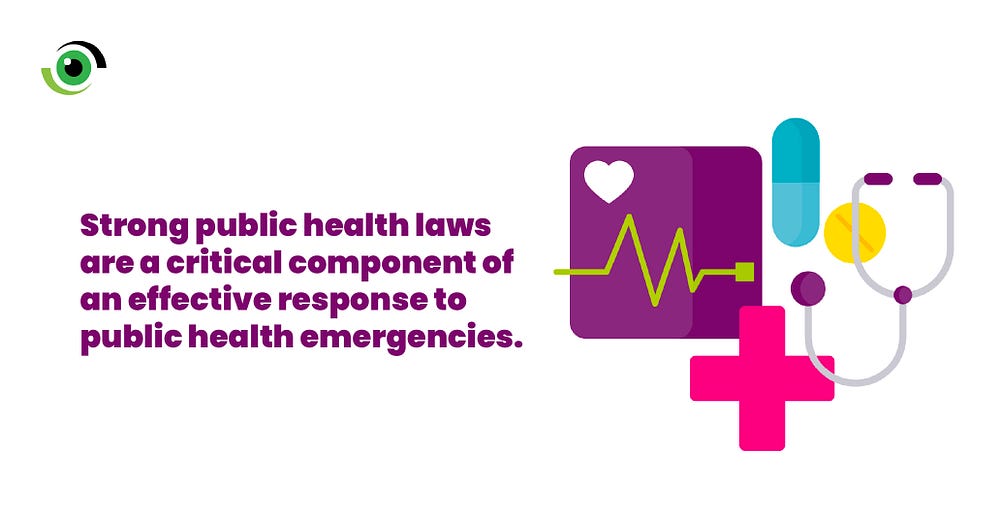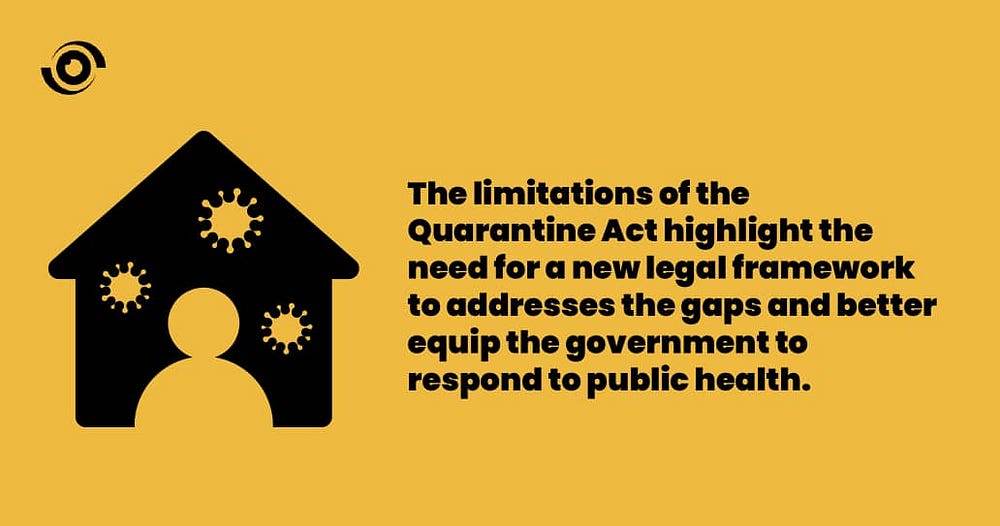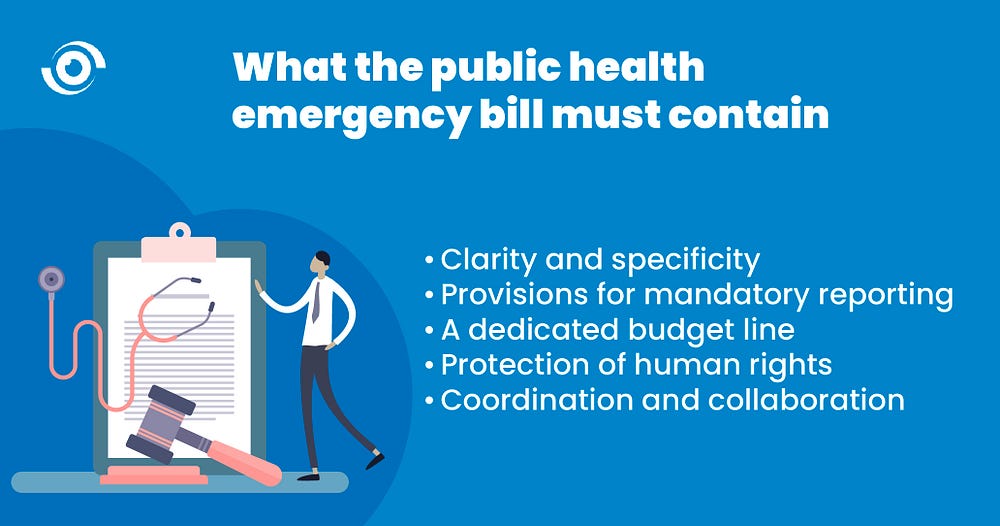[ad_1]
The Quarantine Act of 1926 is an important piece of legislation that establishes a legal framework for preventing and controlling infectious diseases in Nigeria. The Act empowers the Minister of Health to declare any place within or outside Nigeria as an infected area and to issue regulations and guidelines to prevent the spread of infectious diseases.
The Act further empowers the government to take the necessary measures to prevent the spread of infectious diseases, including imposing travel restrictions and establishing quarantine measures. It stipulates penalties for any person who violates its provisions and provides protection for health workers engaged in preventing, controlling, and treating infectious diseases.
Although the implementation of the Quarantine Act requires adequate funding, the Act doesn’t identify a specific source of financing. Furthermore, it does not provide clear guidelines on quarantine and isolation procedures. In addition, the Act covers only infectious diseases, meaning it does not address other public health emergencies such as bioterrorism, chemical, and radiological emergencies. Finally, the Act’s provisions on human rights and civil liberties are ambiguous, leaving room for abuse of power and potentially violating citizens’ rights. These limitations highlight the need for a new legal framework to address these gaps and better equip the government to respond to public health emergencies.
Public health emergencies and legislation
Strong public health laws are critical to effectively responding to public health emergencies. Countries with robust legal frameworks are more likely to control outbreaks and limit their impact on citizens. The International Health Regulations (2005) (IHR) provide an essential legal framework for handling public health emergencies that have the potential to cross borders. The IHR, legally binding on all 196 countries, including the 194 World Health Organisation (WHO) Member States, was developed in response to deadly epidemics affecting various regions.

The IHR establishes the rights and obligations of countries in preventing and responding to public health threats that have the potential to spread beyond national borders, including the mandatory reporting of public health events and the criteria to determine whether a specific event constitutes a “public health emergency of international concern.”
How countries like South Korea and Australia responded to the COVID-19 outbreak demonstrates the significance of having a strong legal framework to handle public health emergencies. The South Korean government’s rapid response to the COVID-19 outbreak, which involved widespread testing, contact tracing, and quarantine measures, can be attributed partly to the lessons learned from managing previous episodes such as the Severe Acute Respiratory Syndrome (SARS) and the Middle East Respiratory Syndrome (MERS) outbreaks in 2003 and 2015, respectively. These outbreaks exposed significant shortcomings in South Korea’s health system, therefore, the country strengthened its legal framework and implemented more effective disease control measures. Similarly, in Australia, legal tools like the Public Health Act of 2016 were used to implement widespread testing, tracing, and quarantine measures, which helped control the spread of the virus.
The ability of these countries to effectively respond to public health emergencies highlights the critical importance of having robust public health laws that empower governments to take prompt and efficient measures to safeguard their populations.
A comprehensive legal framework
Nigeria requires a comprehensive legal framework that enables the government to respond effectively while safeguarding individual rights. The “Bill for an Act to Provide for an Effective National Framework for the Control of Outbreaks of Infectious Diseases and Other Events Endangering Public Health and Requiring Public Health Emergency Measures and For Other Related Matters” was initially presented to the Senate in 2020. The Bill aimed to equip the Nigerian government with the legal tools to respond effectively to health crises.
The Nigerian Senate passed the Bill in January 2022 to revoke the 96-year-old Quarantine Act and establish a legal and administrative framework for managing public health emergencies of national and international concern.

Nigeria’s public health emergency bill — what it must be
The Senate would certainly have ensured that critical elements necessary for the successful implementation of the Public Health Emergency Bill were addressed before its passage in 2022. However, it is essential to ensure that the Bill incorporates these essential recommendations:
- Clarity and specificity: The Bill should clearly define the scope of public health emergencies and provide specific guidelines for responding to different types of outbreaks. This will help ensure consistent enforcement across the country and facilitate a coordinated response.
- Provisions for mandatory reporting: The Bill should include provisions for mandatory reporting of suspected cases of infectious diseases. This will help ensure early detection of outbreaks and allow for rapid implementation of control measures.
- A dedicated budget line: The Bill should provide for adequate resources to support the implementation of its provisions, including funding for research, testing, and surveillance activities.
- Protection of human rights: The Bill should include clear provisions to protect citizens’ human rights and civil liberties, particularly in the context of quarantine and isolation measures.
- Coordination and collaboration: The Bill should establish mechanisms for coordination and collaboration among relevant government agencies, healthcare providers, and international partners to ensure a comprehensive response to public health emergencies.

Expediting the process
After passing the Senate reading in January 2022, the Public Health Emergency Bill is now closer than ever to becoming a law. Given the potential impact of infectious disease outbreaks and other public health emergencies, it is critical that the government expedites the process of passing the Bill into Law and allocating the necessary resources for its implementation. By accelerating efforts to pass and implement the Bill, the government would be demonstrating its commitment to protecting the health and well-being of Nigerians and ensuring that the country is better equipped to respond to any future public health emergencies.
[ad_2]
Source link



